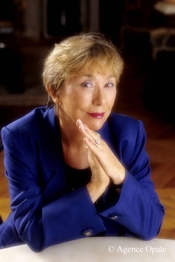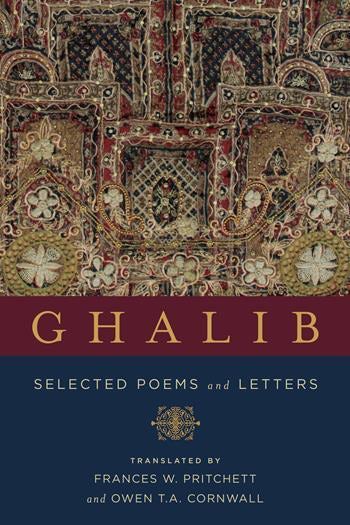Book Excerpt! Meeting with My Brother by Yi Mun-yol

In celebration of National Translation Month, today we are sharing an except from Heinz Insu Fenkl’s introduction to Meeting with My Brother by Yi Mun-yol. Fenkl discusses the importance of the work and translating it for an English language audience.
Don’t forget to enter our drawing for a chance to win a copy of this book or any of the other titles we’re featuring this week!
• • • • • •
I began translating Meeting with My Brother with Yoosup Chang, a former student of mine who provided valuable insight into contemporary colloquialisms and narrative tone, but while we were still in the middle of the novella, Lee Young-Jun approached me with the idea of translating one of Yi’s controversial short stories. He recommended a story in which Yi exposes the hypocrisy of the Confucian preoccupation with patrilineage under the guise of a female schoolteacher’s confessional memoir. This was “An Anonymous Island,” which eventually appeared in the special 9/11 commemorative issue of the New Yorker in 2011—the magazine’s first piece of fiction by a Korean writer.
“[Yi] was interested in the idea of translation as a re-creation of associations in the target language.”
After my own close reading of the Korean edition and re- viewing responses to Suh Ji-moon’s earlier translation, which she had called An Appointment with My Brother (2002), I pointed out to Yi that many of the matter-of-fact allusions to Korean history and culture would be opaque to American readers. In response, he added a few small glosses, and where there was a significant need for a concrete dramatic evocation of the Korean War narrative, he provided an additional scene that is absent in the original Korean edition and Suh’s translation. It is the narrator’s memory of his father’s departure, a scene that many Korean readers might have been able to infer from their knowledge of Yi’s past—an essential element of the story to be made vivid to the English readership.
Yi is meticulous about his use of Korean (down to the etymological roots of words), and he was interested in the idea of translation as a re-creation of associations in the target language. He was happy to see that I understood his use of character names in his novels as a kind of physiognomy; he glossed his own given name, Mun-yol—文烈—for me as “Literary Fire” and jokingly suggested I keep that in mind as a standard for the new translation. Yi understood the limitations of a lexically based translation and was open to the restructuring of sentences as often being a necessity to preserve the original sequence of images and associations. For me, this made the task of translating Meeting with My Brother less constrained but at the same time more challenging.
“Meeting with My Brother offers a sobering, disillusioning, and yet poignant and hopeful perspective on the volatile relationship between the divided Koreas.”
Meeting with My Brother is an unusual novella—at first glance it appears to be a rather journalistic version of the well-understood post–Korean War metaphor of separated brothers as divided nation, but it does not participate comfortably in this literary trope. Philip Gourevitch, writing in the New Yorker in 2003, noted, “There is no moral to Yi’s story, only the awareness that this is what Korea has come to: half brothers, living in their respective half countries, who have inherited a situation that neither one wants and that weakens them both, and binds them by keeping them apart.” In a world that seems to be terrified by the constantly escalating threats posed by the North Korean regime and yet is also curiously riveted by the most current antics of the hermit nation’s idiosyncratic lineage of Kims, Yi Mun-yol’s Meeting with My Brother offers a sobering, disillusioning, and yet poignant and hopeful perspective on the volatile relationship between the divided Koreas.
The novella, like many of Yi’s works, is highly autobiographical. Yi told me that although his mother clung to the unrealistic hope that the family might someday be reunited, he himself had decided that his father was most likely dead once he heard that the elder Yi had been purged sometime in the mid-1950s. It wasn’t until the mid-1980s that Yi’s family received a letter from his father and learned that he had survived for thirty years in various prison camps and now had a new wife and five other children. It went without saying that his father would never return to the South, nor—given the laws of the time—was it possible to correspond with him. Meeting with My Brother is the product of Yi’s decades of imagining his father’s circumstances combined with the story of a fictional narrator’s trip to Yanji, a Chinese city just north of the northern tip of North Korea, where it was possible to arrange for a meeting with someone smuggled across the border.
The plot of Meeting with My Brother is straightforward, and most of it parallels his own life. The fictionalized Yi, the main character and narrator, is a middle-aged South Korean university professor whose father had abandoned his family at the outbreak of the Korean War and defected to the North. Yi has lived with this stigma all his life, and when he learns that his father is still alive after more than forty years of no contact, he engages in a long and risky process of setting up a meeting in China. Unfortunately, his intermediary takes so long with the arrangements that his father passes away in the interim, and the novella opens with Professor Yi agreeing to meet with his younger half-brother instead.
“An antidote, a counterpoint, and an expansion of everything we have come to associate with North Korea…”
As one might predict from such a situation, the meeting is initially charged with bitterness and recrimination, and since we come to the meeting ourselves with a Western bias, we tend to be on the side of Professor Yi. But what we learn from Yi’s half-brother is a surprise. What Yi and the reader might want to dismiss, at first, as the product of North Korean brainwashing, is shocking for its matter-of-factness. It is not the story we would expect to hear from a man whose family did well for themselves in the most repressive regime on earth.
Yi maintains a veneer of anonymity to protect the identities of the central characters in Meeting with My Brother, since the novella includes politically charged conversations with the likes of “Mr. Reunification,” “the businessman,” and a madam who once tried to find work in the South. Although it was first published in Korea in 1994, nearly everything in it still has immediate relevance twenty-five years later. There is nothing else like it currently available in English—even in Korean there are no literary works that approach this theme with Yi’s combination of a dispassionate political and economic perspective along with a poignant personal and cultural insight. Meeting with My Brother reads like it could be a piece of undercover investigative journalism, but it is also, importantly, an allegorical autobiography. An antidote, a counterpoint, and an expansion of everything we have come to associate with North Korea from Western media coverage, Meeting with My Brother is bound to be both controversial and illuminating for readers with an interest in the divided Koreas.
• • • • • •
Read a scene from the novella:







